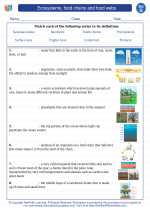Volcanic Eruptions
Volcanic eruptions are one of the most dramatic and powerful forces of nature. They occur when magma from within the Earth's mantle erupts through the surface, resulting in the release of gases, ash, and lava. Understanding volcanic eruptions is crucial for predicting and mitigating their potential impact on human populations and the environment.
Causes of Volcanic Eruptions
Volcanic eruptions are primarily caused by the movement of tectonic plates. When these plates shift, they can cause the release of pressure that allows magma to rise to the surface. Additionally, the composition of the magma, including its viscosity and gas content, plays a significant role in determining the explosiveness of an eruption.
Types of Volcanic Eruptions
There are several types of volcanic eruptions, including:
- Effusive Eruptions: These eruptions involve relatively low-viscosity magma that flows easily, resulting in the gentle release of lava.
- Explosive Eruptions: These eruptions involve highly viscous magma that traps gas, leading to explosive and violent eruptions.
- Phreatic Eruptions: These eruptions occur when water comes into contact with hot rocks or magma, leading to an explosive release of steam, ash, and rocks.
Impact of Volcanic Eruptions
Volcanic eruptions can have a wide range of impacts, including:
- Environmental Impact: Eruptions can release large amounts of ash and gases into the atmosphere, impacting air quality and climate.
- Human Impact: Eruptions can cause destruction of property, loss of life, and displacement of communities.
- Economic Impact: The aftermath of volcanic eruptions can result in significant economic costs, including the need for reconstruction and recovery efforts.
Studying Volcanic Eruptions
When studying volcanic eruptions, it is important to consider the following factors:
- Geological features of the area, including the type of volcano and its history of eruptions.
- Monitoring techniques, such as seismology and gas measurements, to track changes in volcanic activity.
- Understanding the behavior of different types of magma and their potential for explosive eruptions.
Study Guide for Volcanic Eruptions
Here are some key topics to focus on when studying volcanic eruptions:
- Types of volcanic eruptions and their characteristics.
- Causes of volcanic eruptions, including plate tectonics and magma composition.
- Methods for monitoring and predicting volcanic activity.
- The impact of volcanic eruptions on the environment, human populations, and the economy.
By understanding the science behind volcanic eruptions, we can better prepare for and respond to these powerful natural events.
[Volcanic Eruptions] Related Worksheets and Study Guides:
.◂Science Worksheets and Study Guides Seventh Grade. Ecosystems, food chains and food webs

 Activity Lesson
Activity Lesson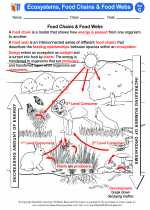
 Worksheet/Answer key
Worksheet/Answer key
 Worksheet/Answer key
Worksheet/Answer key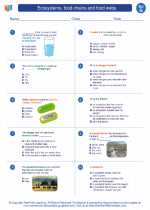
 Worksheet/Answer key
Worksheet/Answer key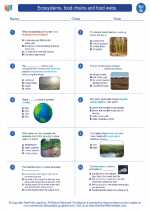
 Vocabulary/Answer key
Vocabulary/Answer key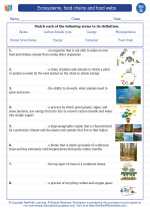
 Vocabulary/Answer key
Vocabulary/Answer key
 Vocabulary/Answer key
Vocabulary/Answer key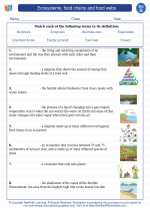
 Vocabulary/Answer key
Vocabulary/Answer key
 Vocabulary/Answer key
Vocabulary/Answer key